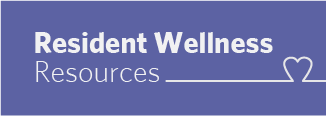
General Rules
- Go with a faculty or allied health professional person for first home visit to establish safety issues
- Carry a cell phone.
- Lock your car.
- Make sure patient and/or caregiver knows when you will arrive.
- Tell supervisor about pet allergies (or other allergies).
- Keep alert for safety issues at all times.
- Don’t do a house call in the evening or night unless you know the patient/family/community and have been there before and know the environment.
Before the House Call
- Look at previous notes regarding any previous alerts for aggression, pets, pests and unsafe conditions in the home.
- Check the address to understand the surroundings (poverty, busy roads, isolation).
- Know who else is in the house.
- Be aware of support personnel going into the home.
- Let the secretarial staff know when you are going and where you are.
During the House Call
- Carry cell telephone and be aware of emergency contacts.
- Park your car so you won’t be blocked in and can get away easily and lock your car.
- Carry a safety alarm (if you have any concerns).
- Dress professionally and have shoes with covered toes.
- Pause at the entrance to introduce yourself and look around for possible hazards.
- It is best not to remove your shoes and therefore carry surgical booties in case the family asks you to remove your shoes.
- Ask the patient and family not to smoke in your presence.
- If you become concerned about bed bugs, sit on a hard chair, stamp your feet, and carry little with you (wear protective clothing if you know they are in the home).
- Sit in the living or dining room with clear access out. (It’s best not to sit in the kitchen where there may be weapons like knives
- Eating or drinking in a house call needs your own discretion.
- Take a hearing enhancement device in case the patient can’t hear well.
If Threats Occur
- Use verbal de-escalation techniques.
- Adopt a defensive posture.
- Leave the home if you feel unsafe.
- If the patient is certifiable and possibly aggressive, leave the home, call Mental Health Emergency Services, or police as needed. (Mental Health personnel should carry committal certificates with them.)
- Report any incidents into records so future health care professionals will be alerted.
Physical Exam
- Do not do partial exams when a full exam is required. Instead have the patient go to an office or Emergency. “In a house call, although the setting in which the doctor/patient relationship takes place is informal, the duty of care imposed on the physician is as stringent as in the formal environment of the physician’s office or the hospital.” Reference: CMPA document.
- Tell the patient what you are about to do in a physical exam and ask permission to do the physical just as you would in the office.
- Consider using a chair or sofa whenever possible for an exam, and preferably in a public space in the home. Only use a private bedroom when it is not feasible to examine the patient in a more public area of the home.
References
- Review article: House Calls.
American Family Physician. 2011 April 15; 83(8): 925-93. - House Calls 101. Ontario Family Physicians
- CMPA Spring 1995 – Revised February 2008 IL9520-4-E. House Calls: What the Courts Have Said.
- Public Services Health and Safety Association. A Health and Safety Ontario Partner.
Tips for Guarding Your Personal Safety on Home Visits. This is a free download. - Home Visit Safety Tips
- Vancouver Coastal Health Authority Employee Protection Guidelines for Safe Home Visits.
Approved by PGEC October 6, 2015

